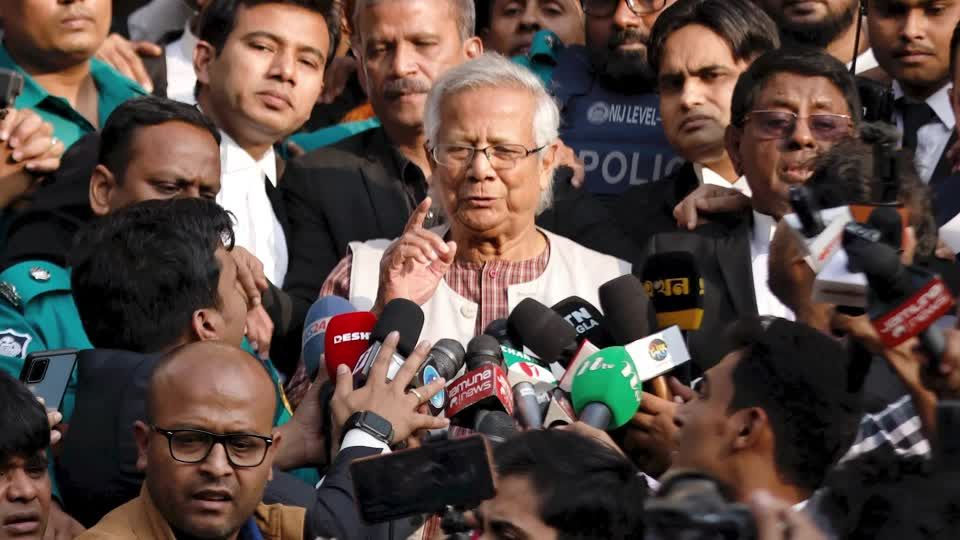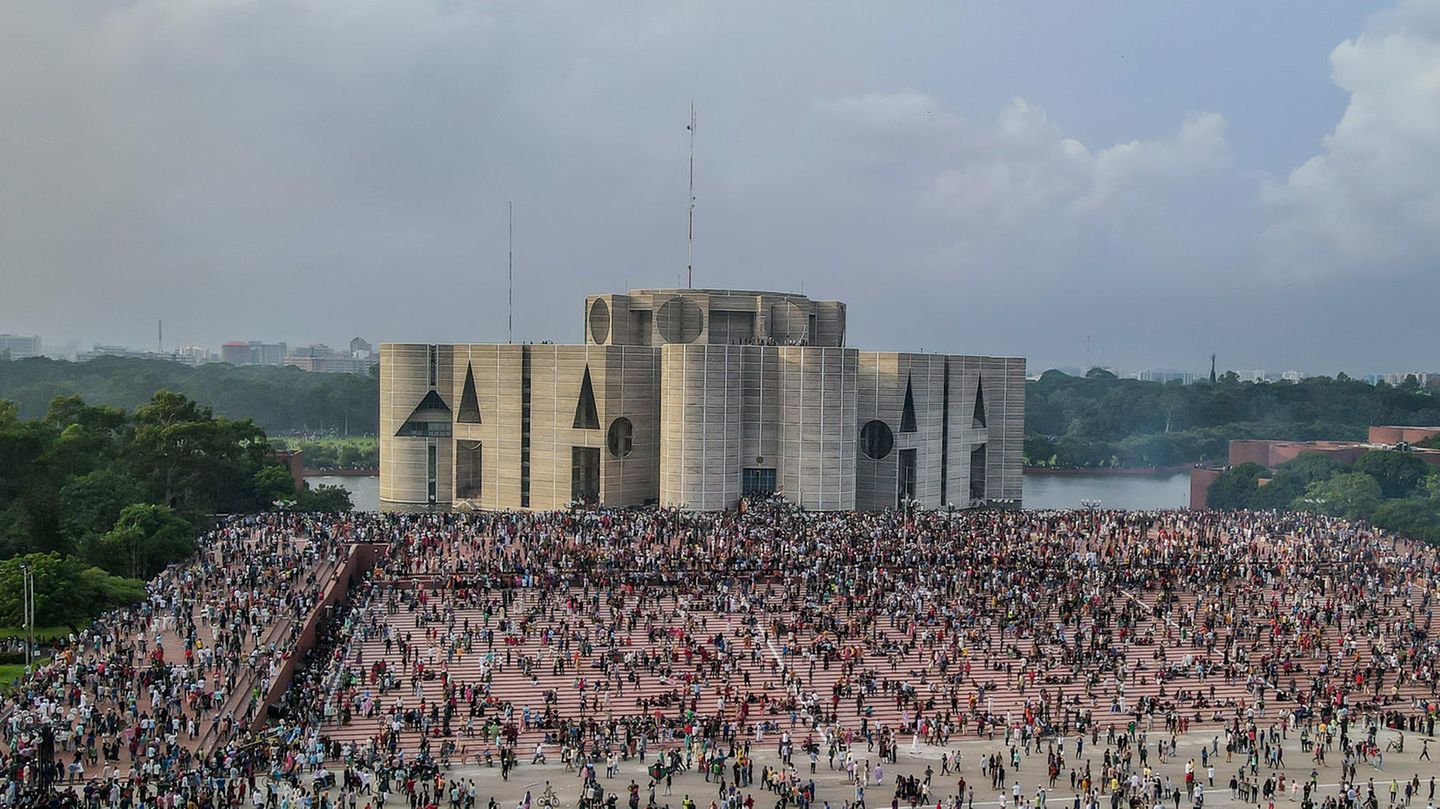After the bloody revolts and the escape of the Prime Minister, Bangladesh needs a new government. The students want a Nobel Prize winner as head of state – at least temporarily.
One day after long-time Prime Minister Sheikh Hasina fled Bangladesh, the country’s president has dissolved parliament. President Mohammed Shahabuddin’s press secretary announced this in a statement on Tuesday. The head of state thus complied with a key demand of the students who had led the weeks-long mass protests against Hasina’s government.
Shortly before the announcement of the dissolution of parliament, opposition leader and former prime minister Khaleda Zia was released from prison, her party announced. “She is now free,” Bangladesh National Party (BNP) spokesman AKM Wahiduzzaman told the AFP news agency. The politician is a bitter rival of Hasina. Zia was convicted of corruption and placed under house arrest. The families of both women have shaped Bangladesh’s politics since independence in 1971.
Bloody protests against quota system and government in Bangladesh
Sheikh Hasina, who has ruled for 15 years, fled the South Asian country on Monday. Army chief Waker-Uz-Zaman announced the formation of a transitional government. He was due to meet student leaders on Tuesday.
At least 109 people were killed in the violent protests on Monday alone, police and doctors said on Tuesday. It was the bloodiest day since the mass protests began in early July. According to figures available to AFP, at least 409 people were killed in total.
The demonstrators originally took to the streets against a quota system for the allocation of public sector jobs, which they believed favored Hasina’s supporters. Little by little, the resignation of the head of government, who has been in office since 2009, became the goal of the protest movement, which was joined by more and more people from all walks of life.
Students want Nobel Prize winner as interim head
A leader of the student protests had spoken out in favor of Nobel Prize winner Muhammad Yunus as head of an interim government. The “internationally recognized” Yunus, “who enjoys broad acceptance, could be a senior adviser to an interim government,” said Nahid Islam, leader of the Association of Students Against Discrimination (SAD), in a video message on Tuesday.
Yunus, now 84, founded the Grameen Bank in the 1980s, which provides microcredits to the poorest people in Bangladesh and has helped millions of people out of poverty. In 2006, the economist was awarded the Nobel Peace Prize for his efforts. He was also long considered a potential political opponent of Prime Minister Sheikh Hasina, who called him a “bloodsucker.”

Prison sentence for Nobel Prize winner Yunus
01:20min
“We trust Dr. Yunus,” said Asif Mahmud, another leader of the student movement SAD, on the online service Facebook. Yunus is currently in Europe. A close associate said on Monday that Yunus has not yet received an offer from the military to lead a transitional government.
The 76-year-old Hasina was confirmed in office in January in an election boycotted by a large part of the opposition. Her government was accused of, among other things, abusing state institutions to maintain its own power and suppressing government critics – even to the point of extrajudicial killing of opposition members. In recent weeks, millions of people have taken to the streets and demanded her resignation.
Source: Stern
I have been working in the news industry for over 6 years, first as a reporter and now as an editor. I have covered politics extensively, and my work has appeared in major newspapers and online news outlets around the world. In addition to my writing, I also contribute regularly to 24 Hours World.




